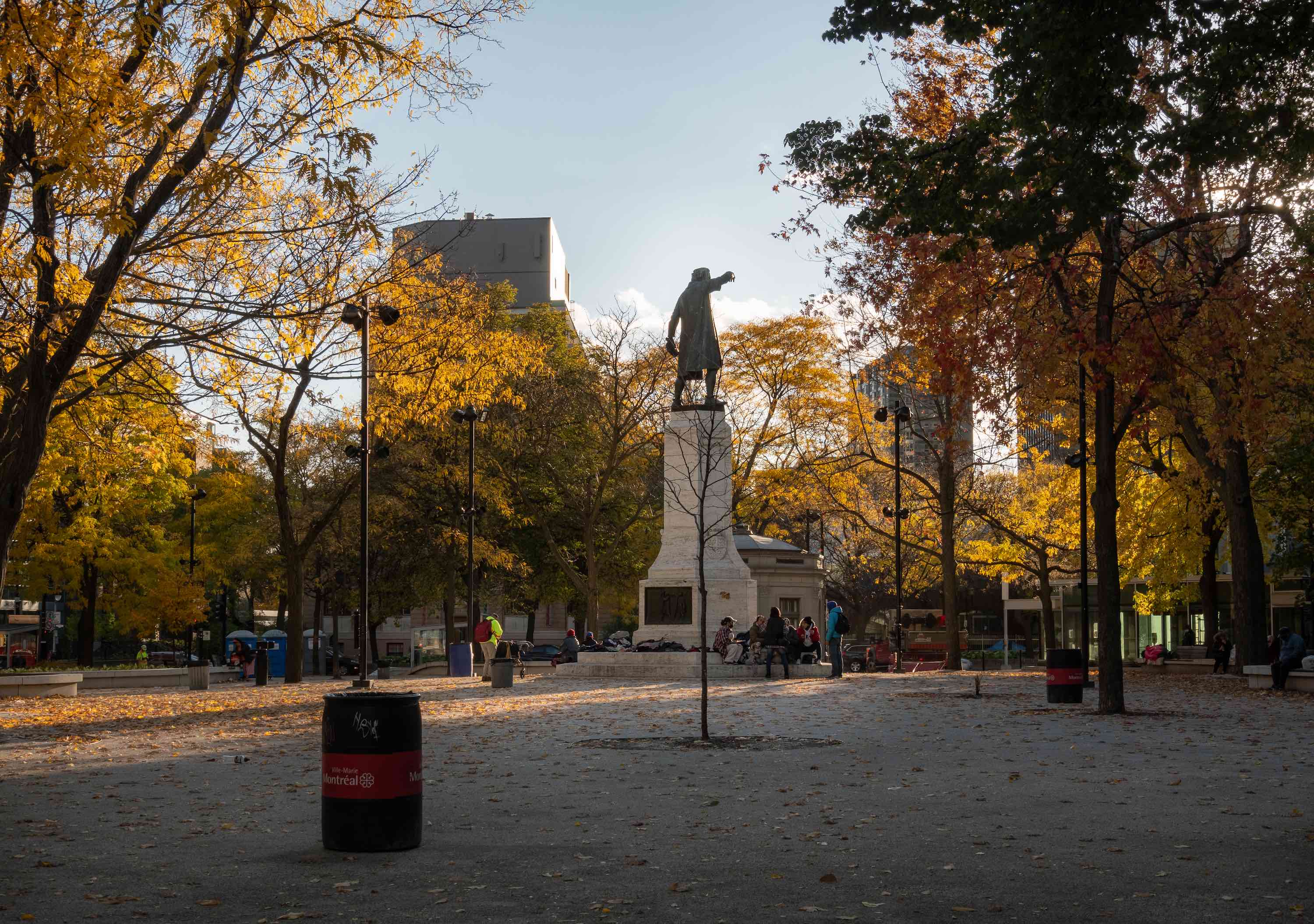Ask the average McGill student to point you in the direction of Cabot Square, and not many can. You may have better luck with a Concordia student considering the square’s proximity to their campus. To many Indigenous people in Montreal, however, the urban square holds a special significance. As a long-established informal meeting place of the Inuit and First Nations Peoples who have travelled to Montreal seeking medical care, today Cabot Square comprises a diverse community that includes people experiencing homelessness and the city’s most at-risk populations. Ironically, its monument and namesake hails from an Italian colonizer who serves as a reminder of the far reach of settler colonialism—a system that has placed so many structural barriers upon Indigenous Peoples living in urban centres. This paradox, as well as the neglected state of Cabot Square itself, serves as a reminder that Montreal has failed to meet the numerous calls for justice set out by the National Inquiry into Missing and Murdered Indigenous Women and Girls (MMIWG).
Released in June of 2019, the report stresses the need to combat the disproportionate levels of violence directed at Indigenous women and girls. The calls to action propose mandatory anti-racism and cultural safety training for public servants in policing, justice, education, health care, and social work. Despite this, just last month, the country witnessed another egregious and glaring example of systemic racism in Quebec’s healthcare system with the death of Joyce Echaquan. This certainly is not an isolated incident in the province. A 2019 independent report on law enforcement found that Indigenous women were particularly overrepresented in street checks carried out by Montreal police. Data like this makes it obvious that the recommendations set out to protect Indigenous women are not being actively addressed.
Shelters like Resilience Montreal, located at Cabot Square and run by the Native Women’s Shelter, have begun working towards these calls to justice. Resilience Montreal works to reach out to and support the Inuit community in particular, by providing everything from housing, mental health services, and traditional Inuk food in an effort to create a safe space for at-risk Indigenous women. While these services have had a tremendous positive impact on the area, it is not enough to turn the tide of systemic racism and sexism city-wide. The municipal and provincial governments must step up and implement change in all administrative sectors—though this goal seems remote considering the Quebec Premier’s refusal to even acknowledge that systemic racism exists. Unfortunately, the future of projects like Resilience remains uncertain, with the funding and lease location currently up in the air. The COVID-19 crisis has only exacerbated this uncertainty, requiring costly sanitary measures and reducing capacity, making action by the city all the more crucial.
Here at McGill, non-Indigenous students can show support by educating themselves on issues affecting Indigenous people in the country that they study in and take account of nationally significant days of reflection such as Orange Shirt Day, which is held on Sept. 30 every year to raise awareness of Canada’s residential schooling system. After all, being aware of the bystander effect is the first step in overcoming it. The next step is speaking out and getting involved. Students can help Resilience and the Native Women’s Shelter through volunteering time and by making physical donations of anything from homemade sandwiches to clothing items.
As the next generation of progressive voices, it is up to young people and students to change the paradigm we live in and hold our institutions accountable. It is no longer acceptable to live in a city where your gender and culture determines your access to a humane living environment, the type of healthcare you receive, and your safety. The future of Indigenous women starts today, not tomorrow.










My very good friend Diane Gervais has been feeding the citizens of Cabot square for the past few months on the weekend with her helpers and as of late been collecting sleeping bags and warm clothing. I myself have supplied them with about 75 face mask. It’s very sad what is happening in our city. Hopefully someone will wake up and not let these people die come winter. Thankyou for bringing this to the attention of our city’s population.